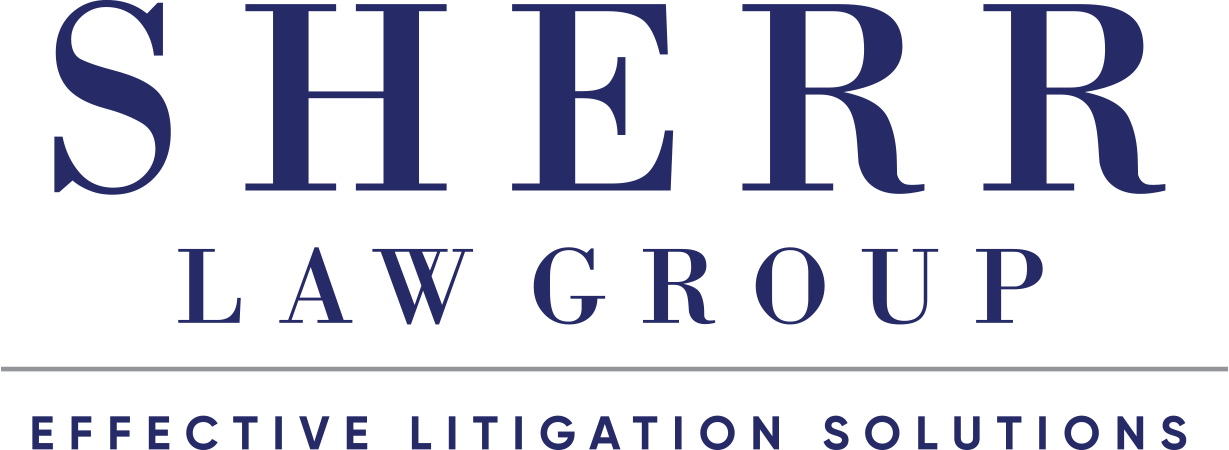Bad Faith Insurance Defense
Navigating the complexities of bad faith insurance claims requires skilled legal representation. At Sherr Law Group, we provide dedicated defense for insurance companies facing bad faith claims, ensuring compliance with legal standards and protecting our clients’ interests.
Our team understands the intricacies involved in bad faith insurance defense, including the necessity to demonstrate good faith actions, the importance of thorough documentation, and the strategic handling of claims processes. We strive to build a robust defense that highlights the insurer’s adherence to policy terms and regulatory requirements.
Skilled Attorneys for Bad Faith Insurance Defense
Bad faith insurance claims can have significant financial and reputational implications for insurance companies. When policyholders allege that an insurer has acted in bad faith, it is essential to have a skilled attorney to defend against these claims effectively. Sherr Law Group’s skilled insurance defense attorneys have an in-depth understanding of insurance laws and regulations. We are here to interpret complex policy language, evaluate the validity of claims, and identify potential defenses. Our team’s experience and wealth of legal knowledge ensures that insurers are represented effectively in court or during settlement negotiations.
At Sherr Law Group, our experienced attorneys develop comprehensive defense strategies tailored to the specifics of each case. They analyze the details of the claim, gather evidence, and consult with experts to build a robust defense. This strategic approach increases the likelihood of a favorable outcome for the insurer.
Comprehensive Legal Support
Sherr Law Group offers a comprehensive range of services to defend insurance companies against bad faith claims. Our practice areas include:
- Policy Analysis and Interpretation: We thoroughly review insurance policies to determine coverage limits and exclusions, ensuring accurate interpretations that support the defense.
- Claims Handling Review: Our team examines the insurer’s claims handling process to identify any procedural errors and ensure compliance with regulations.
- Evidence Gathering: We collect and analyze evidence demonstrating the insurer’s good faith actions, including investigation reports, communication records, and expert testimonies.
- Strategic Defense Planning: We develop tailored defense strategies, considering all relevant factors to build a robust case.
- Litigation and Negotiation: Our attorneys are experienced in both litigation and negotiation, representing insurers in court and during settlement discussions.
- Regulatory Compliance: We ensure that the insurer’s practices align with state and federal regulations, mitigating the risk of regulatory violations.
Our team thorough approach, from policy analysis and claims handling review to evidence gathering and strategic defense planning, ensures robust and effective representation. Trust us to safeguard your interests with tailored litigation, negotiation, and regulatory compliance.
What Our Clients Say
Get a Free Case Evaluation
Key Factors in Bad Faith Insurance Defense
Defending against bad faith insurance claims involves addressing several critical factors. Understanding these elements is essential for building a strong defense:
- Policyholder’s Expectations: One of the central issues in bad faith claims is whether the insurer met the policyholder’s reasonable expectations. This involves examining the policy language, coverage limits, and any representations made by the insurer.
- Claims Handling Process: The manner in which the insurer handled the claim is a crucial factor in bad faith cases. This includes the timeliness of the investigation, communication with the policyholder, and the rationale for denying or delaying the claim.
- Evidence of Good Faith: Demonstrating that the insurer acted in good faith is essential for defense. This includes providing evidence of thorough investigations, reasonable claim evaluations, and fair settlements.
- Compliance with Regulations: Insurers must comply with state and federal regulations governing claims handling practices. Non-compliance can be used as evidence of bad faith.
- Communication Records: Effective communication between the insurer and the policyholder is crucial in bad faith defense. Attorneys review all communication records, including emails, letters, and phone calls, to demonstrate transparency and responsiveness. Proper documentation can counter allegations of misrepresentation or lack of communication.
- Expert Witnesses: Utilizing expert witnesses can strengthen the defense. Experts in claims handling, underwriting, and medical evaluations can provide objective insights and testimony supporting the insurer’s actions.
At Sherr Law Group, we build robust defenses that protect our clients’ interests effectively. Our attorneys meticulously consider all the aforementioned factors when creating a defense strategy to ensure the best possible outcome.
Contact Our Bad Faith Insurance Defense Attorneys
If you are facing a bad faith insurance claim, Sherr Law Group is here to help. Our experienced attorneys will provide the precise legal representation you need to navigate these complex issues effectively. Contact us today to schedule a consultation and learn more about how we can assist you in defending against bad faith insurance claims.
FAQs About Bad Faith Insurance Defense
Skip
What is bad faith insurance?
Bad faith insurance refers to an insurer’s intentional refusal to fulfill its contractual obligations to policyholders. This can include denying a legitimate claim, delaying payment without reasonable justification, or failing to investigate and process a claim promptly. Bad faith actions violate the implied covenant of good faith and fair dealing inherent in all insurance contracts.
What are common examples of bad faith insurance practices?
Common examples include unjustified denial of claims, delaying claim processing without valid reasons, offering significantly lower settlements than what is owed, failing to provide clear reasons for claim denial, and not conducting thorough investigations. These actions can harm policyholders financially and emotionally, leading to legal disputes and potential penalties for the insurer.
How can an insurer defend against a bad faith claim?
An insurer can defend against a bad faith claim by demonstrating that they acted reasonably and within the policy terms. This includes providing thorough documentation of the claims process, showing clear communication with the policyholder, and proving compliance with all relevant regulations. Consulting with legal help and gathering evidence of good faith actions are also crucial steps.
What must a policyholder prove to win a bad faith claim?
To win a bad faith claim, a policyholder must prove that the insurer’s denial or delay of the claim was unreasonable and that the insurer knew or recklessly disregarded the fact that their actions were unreasonable. Evidence may include communication records, expert testimony, and documentation showing the insurer’s failure to comply with industry standards and regulatory requirements.
What are the potential consequences for an insurer found guilty of bad faith?
If an insurer is found guilty of bad faith, they may face significant penalties, including compensatory damages for the policyholder’s losses, punitive damages to punish and deter future bad faith actions, and attorney’s fees. Additionally, the insurer’s reputation can be severely damaged, leading to loss of trust and potential loss of business.
How does Sherr Law Group assist insurers with bad faith claims?
Sherr Law Group provides comprehensive legal defense for insurers facing bad faith claims. Our attorneys analyze policyholder expectations, review the claims handling process, gather evidence of good faith actions, ensure compliance with regulations, maintain thorough communication records, and coordinate with expert witnesses. Our meticulous approach aims to build a robust defense, protecting insurers’ interests and minimizing potential liabilities.
Recent Articles
COVID-19 Produces Its First Wrongful Death Suit in Pennsylvania
COVID-19 Produces Its First Wrongful Death Suit in Pennsylvania As we predicted in a recent blog, the pandemic is likely to prompt a flood of wrongful death lawsuits against private sector and municipal employers. On May 7, 2020,...
Do Act of God Clauses Include COVID-19?
Following the SARS outbreak in 2002, many business interruption insurance policies started including an exemption for pandemics caused by a viral or bacterial outbreak. But even those that do not specifically reference a pandemic are likely to have a catch-all “Act of...
Ronald Sherr’s Role in Historical Tropicana Garage Collapse Case
Ask any attorney about the cases of their career that touched them most and they won’t need to think for long – even if it’s been years or decades since those cases have been resolved. We ultimately began our career hoping to make a difference and practice law based...
Insurance Defense 101: The Role of an Insurance Defense Attorney
Most of us use several types of insurance in our daily lives. Its purpose is to keep us safe and protected, physically and financially. We expect our insurance companies to protect us by following best practices and laws for our state, and by being on our side when...
Protecting Your Business Against Products Liability Claims
Protecting Your Business Against Products Liability Claims Products liability means you are held responsible for the safety and of the products your company produces. You can be anywhere on the supply chain and still ultimately be held responsible for a faulty...
Quick Case Resolution Leads to Favorable Outcome
Recently, Lisa Ondich settled a personal injury case in a remarkable 22 months – about half the time such cases usually take to be resolved – and obtained $350,000 for her client. She sat with us to answer questions about the process and how “front end loading” the...






